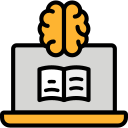
Digital Encyclopedias for Diverse Learners
Chosen theme: Digital Encyclopedias for Diverse Learners. Welcome to a space where knowledge adapts to every reader—from emerging bilinguals and neurodiverse students to curious adults returning to learning. Join us, share your experiences, and subscribe for weekly insights.

Accessibility Features that Truly Matter
Modern digital encyclopedias offer text-to-speech, dyslexia-friendly fonts, adjustable contrast, and keyboard-first navigation that align with WCAG and UDL principles. These features remove barriers, letting learners focus on curiosity instead of fighting interfaces.

Microlearning and Chunked Knowledge
Breaking articles into digestible sections, layered summaries, and scaffolded definitions helps readers regulate pace and comprehension. This structure supports attention variability, turning overwhelming topics into approachable, confidence-building learning pathways for diverse readers.

Anecdote: A Classroom Breakthrough
A ninth grader with dyslexia discovered text-to-speech and adjustable line spacing in a digital encyclopedia. For the first time, she finished a science article independently, then eagerly explained mitosis to her lab group. Share your breakthrough moments with us.
Designing Inclusive Knowledge Navigation
Clear headings, predictable layouts, generous tap targets, and consistent iconography anchor the experience. When learners anticipate where information lives, cognitive load drops, exploration increases, and confidence grows. Comment with your favorite design patterns that lower friction.
Designing Inclusive Knowledge Navigation
Pair concise text with audio narration, captions, alt-texted images, transcripts, and interactive diagrams. Multimodal choices help bilingual learners, visual thinkers, and students with hearing differences engage meaningfully. Which formats do your learners request most often? Tell us below.


Customization and Personal Learning Paths

Adaptive Reading Levels and Lexile Tuning
Offer layered versions of the same entry—overview, intermediate, and extended—without dumbing down content. Adaptive levels maintain rigor while providing on-ramps, letting readers choose challenge today and stretch tomorrow. How would you implement leveling in your context?

Personalized Glossaries and Concept Maps
Allow users to pin unfamiliar terms, generate personalized glossaries, and view dynamic maps that reveal relationships across entries. These tools transform passive reading into active sense-making. Share your learners’ favorite glossary features and we’ll spotlight them in a future post.

Progress, Motivation, and Gentle Nudges
Subtle progress markers, streak-free encouragement, and reflective prompts outperform loud gamification. Celebrate curiosity, not points. Invite readers to set goals like “three entries a week,” then send respectful reminders. Subscribe for templates that keep motivation humane and sustainable.
Cultural and Linguistic Responsiveness
Multilingual Entries Without Second-Class Versions
Translations should be first-class: identical depth, updated simultaneously, and culturally localized examples. Avoid abbreviated language versions that quietly marginalize readers. Which languages would most benefit your community? Comment so we can prioritize future coverage and resources.
Local Context and Community Knowledge
Pair global topics with locally relevant case studies, names, and histories. Invite community experts to review entries for accuracy and resonance. Readers recognize themselves in the content—and keep reading. Tell us which local stories your learners want represented.
Respectful Representation and Bias Audits
Run routine audits for stereotypes, gender imbalance, and missing perspectives. Include transparent sourcing notes and revision histories. Accountability builds trust, especially for learners who rarely see themselves centered. Subscribe to learn practical bias-audit checklists for editorial teams.
Offline and Low-Bandwidth Access
Downloadable Packs and Delta Updates
Offer topic packs for offline reading, with small delta updates that refresh only changed sections. This saves data for learners with limited connectivity while keeping entries current. Have you tried offline bundles? Share your experiences below.

